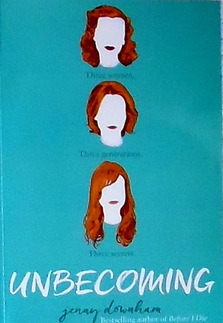 I've loved books and stories since before I could read. The school library was a magical place packed with shelves of wonder. I carried away stacks of books, my insides tingling, my mind racing ahead to a cozy, quiet spot where I would carefully choose the first book and open the cover. While the books I read have grown thicker and the selection broader, my love for good stories remains. But lately, I've been reading without enjoyment. Even worse, I was quitting on books. I never quit on books. If I read the first chapter, I stick it out to the end, even if I don't relate to the main character or totally believe the plot. I have too much respect for stories to not follow them to the last page. So what happened to my story-loving heart? I became a writer. Writers read books differently. We study them. We analyze and criticize, mentally edit, note the clever plot twists and lovely passages. If it's a masterpiece, we mourn our lack of ability to ever write such a thing. Maybe it's possible to shut off the writer's brain while you read, but I haven't learned it. Still, I was determined to rediscover the joy of reading. I scoured lists, tried book after book, read outside my favorites genres. Nothing worked, and it was starting to depress me. Then two weeks ago my esteemed writing peer Augusta Scattergood passed me a YA book to read. I took it with no enthusiasm. It was contemporary, not my favorite genre. I had two other books on my bedside table, one fiction, one nonfiction. But I opened the new book. Here's the beginning of Jenny Downham's Unbecoming: "It was like an alien had landed. Really, it was that weird. Like an ancient creature from another planet had crashed into Katie's day." That's seventeen-year-old Katie, who until this moment has been trying to live up to her mother's ideal: good student, good daughter, good sister to her emotionally challenged brother. Now, she's sitting next to a grandmother she's never met, listening to her mother desperately try to convince a hospital social worker the old woman can't come home with them. Katie observes: "The old woman just sat there, eyes shut now. She wasn't asleep though--you could tell by the tip of her chin. Maybe it was a trick? Maybe she wanted them to think she was napping, so she could scarper when no one was looking? Her boyfriend was dead, the doctors thought she was too vulnerable to go home, and her daughter didn't want her. Why not escape and start a new life somewhere else?" And just like that, I was there, sitting with that demented old woman, feeling Katie's confusion, curiosity and compassion. In the space of a page, I cared about them. I read the next page and the next several chapters, without thinking about who was writing or how they accomplished this incredible story. I didn't stop to study sentence structure or plot or character. For the first time in a year, I was enjoying a book. Thank you, Jenny Downham. Your beautiful book renewed my faith in stories and reminded me why I write. But best of all, you restored my joy in reading. * Note to readers: If you'd like to know more about Unbecoming, here's my review on Amazon. Which reminds me, authors appreciate reviews, even the critical parts, as long as the criticism is presented with respect. Your reviews have an impact. They can bolster writers' belief in their ability and help them tell better stories. But mean-spirited reviews are toxic. They poison the venues they appear on and bruise writers' hearts. So before you post negativity, think how you'd feel if someone wrote the same about your work.
1 Comment
School's out. Two months of freedom from school work. What will you do with all that freed up brain space? Read, of course! You'll want books at the beach, books for lazy afternoons on the porch or under a tree, books on long car rides and late nights in bed. So this month, LikeWise features sites dedicated to readers.
First up is teenreads.com. Teenreads offers the Ultimate Reading List of 400 books, interviews with authors and publishing professionals, polls, contests, a blog and monthly book and screen reviews. What I liked most about this venue was the Teen Board. Thirty teens from around the country are chosen by staff for a year long commitment to provide reviews and blog posts, as well as answer reader questions. The site's recommendations include non fiction and adult books. Next up is Readingteen.net. It features similar content: book reviews, giveaways and blog. But it's run by two mothers and their young adult children with part time reviews by a handful of teens. While there are adult, motherly opinions being offered on their blog, I thought the content was thoughtful and invited discussion. I especially liked this post urging book banners and the banned books' supporters to stop fighting and start listening: Child Corruptors vs. Nazi Book Burners At The Library of Congress, you'll find booklists, poetry and free resources. They feature fantastic author webcasts and a gazillion links that probably lead to a gazillion more links so there's no telling what sort of treasure you'll dig up. Finally, there's Reading Rants, a blog hosted by Middle school librarian Jennifer Hubert. She reviews books for teens but doesn't stick to the YA section and she accepts book suggestions from readers. I love her listed links, which include book reviews by topic, blogs for teens and out-of-the-ordinary authors. These are just a sampling of the sites I found. Try them out, start a reading list. If you're the type who likes to share books with friends and those friends are away for the summer, join a book club. You can find them at libraries, Nerdfighters, Goodreads or The Guardian. And if you love a book so much you're eager to share it with the world, create a YouTube review. Who knows, you might gather a following, like Jesse the Reader who offers brief book reviews for summer reading below. 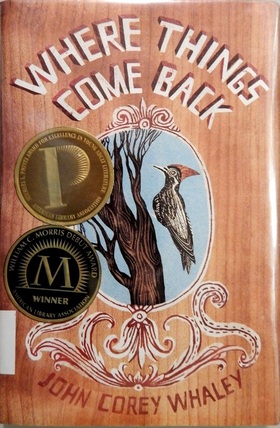 Three and a half months left to achieve my goal of reading five Newbery and five Printz books this year. I've finished my Printz list and enjoyed two Newbery winners since my last post on the subject. Here are the novels I haven't reviewed: Where Things Come Back by John Corey Whaley won the 2012 Printz award. Seventeen-year-old Cullen Witter spends a lot of time daydreaming about Ada Taylor (his perfect girl), zombies attacking Ada's current boyfriend and and escaping from Lily, the tiny Arkansas town where nothing ever happens. At least until his brother Gabriel disappears. At the same time, an obsessed ornithologist claims to have spotted an extinct woodpecker in Lily. As Gabriel's disappearance stretches to months and Lily is overrun with birdwatchers, Cullen's family and friendships unravel. Ada, who has a thing for boys with bad luck, finally notices Cullen. He tries, really he does, to be happy but Ada isn't exactly what he imagined and she complicates his life. Meanwhile Cullen struggles to hold onto his belief that his brother will return. But how long can you believe in things coming back? Skellig by David Almond won the 2000 Printz award. Michael retreats to the crumbling garage at his new home while inside the house, his frail baby sister needs constant medical care. Among the garage's spiders, dust and dead bugs, Michael discovers a dried up, wrinkled old man named Skellig. The man tells him to go away but Michael brings him Chinese food and aspirin. He keeps Skellig secret until he meets his neighbor Mina, a home-schooled girl who quotes William Blake and nests in a tree drawing birds. Micheal brings Mina to see Skellig and shows her the bumps under the man's coat on his back. As Michael's sister is hospitalized, he and Mina move Skellig from the falling down garage to an abandoned house. Then they convince the old man to take his coat off and he unfurls the wings they hoped to find underneath. Mina believes Skellig is a bird-like creature left over from ancient times. But Michael dares to hope he's an angel and if he is, maybe he dares hope his sister will survive. A Single Shard by Linda Sue Park is the 2002 Newbery winner. Young Tree-ear lives under a bridge in 12th-century Korea with his old friend Crane-man. They are the poorest of the poor, living off garbage scraps and rice that falls from sacks. Tree-ear's greatest joy is peeking from his hiding spot to watch the ancient potter Min create graceful celadon pottery. One day he dares to examine Min's boxes, drying in the sun. The old potter catches him and the boxes smash on the ground. Tree-ear hauls heavy loads of clay in a rickety wheelbarrow to pay Min back while he dreams of making pottery. When he's worked off his debt, he convinces Min to let him continue working for a noon meal. Then the royal ambassador comes to select pottery for the palace. Even though Min has ignored the boy's pleas to teach him the craft, Tree-ear is determined to help his master win the royal commission. But what will it cost him? Flora and Ulysses by Kate DiCamillo won the 2014 Newbery Medal. DiCamillo makes me never stop trying to write the best book I can. Every book she pens is unique and stunningly beautiful. Flora and Ulysses opens with a squirrel being sucked up by the Ulysses 2000X, a super sonic vacuum cleaner. Ten-year-old Flora Belle Buckman rescues the unfortunate creature and names him Ulysses. Ulysses wakes from his near death experience with super hero powers and a love of poetry. Flora takes him home and the two become instant friends. But Flora's mother, horrified by the germy squirrel, plots to carry it off in a sack and conk it with a shovel. Flora enlists the aid of her father, a boy with hysterical blindness, a neighbor and a wise old woman to help save the squirrel. The book is told in alternating comic book strips and text with Flora's favorite comic book phrases and advice sprinkled throughout. When Flora learns the squirrel can type she thinks: Holy Bagumba. Things are going to change around here. We're going to slay villains left and right. But she never counted on the arch villain being her mother. So that's seven award-winning books read this year. Three Newbery's to go. And now a word about today's art. Goat. Don't ask me why. I had a sudden urge. I've never drawn one before. I like goats but I'm not familiar with them like I am with horses and dogs. This creature would probably be insulted by its portrait. I'm sure the proportions are off and I wasn't careful with the markings. But I loved drawing this goat and I can't wait to draw more. If you have a creative urge, don't ignore it. Stop what you're doing. Pick up your pencil or brush or lump of clay, head for the computer or whatever instrument you use to create and go for it! 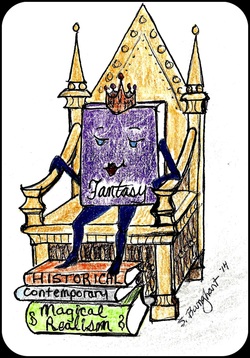 Wednesday, as part of the celebration of National Children's Book Week, the winner of the Teen's Choice Book Awards was announced. Readers on Teenreads chose the top five books: Ellen Hopkins' Smoke, Rainbow Rowell's Eleanor and Park, Veronica Roth's Allegiant, Rick Yancey's The 5th Wave and Cassandra Clark's Clockwork Princess. Then teens voted from March 25 - May 12, 2014 at ccbook awards. And the winner is . . . Allegiant. Science Fiction. Again. Don't get me wrong, I love fantasy (for brevity's sake, I'm lumping sci-fi, paranormal and wizarding worlds), but there are other genres. And there are so many well-written, compelling books ignored for the trendy books, the ones Hollywood turns into blockbuster films. This is my worry -- those films are steering readers to bookshelves, virtual and real. They're creating readership for people like Roth. I enjoyed Divergent and I wish her success but do we really want our literary tastes determined by Hollywood? The movie industry is counting on teens' supposedly insatiable appetite for fantasy. There's still the final Hunger Games, Hobbit and Divergent movies to come. Plus a film trilogy based on JK Rowling's Fantastic Beasts and Where to Find Them. I expect those movies to drive readers to those books, tightening fantasy's grip on the literary throne. Despite this trend, John Green's contemporary novel The Fault in Our Stars won the 2013 Teen's Choice award, beating four fantasy titles. And Hollywood noticed. The Fault in Our Stars, the story of two teens who meet in a cancer support group, is being released June 6th. Will the movie achieve the blockbuster success of YA fantasy? If it does, will more contemporary books be converted to film and will that catapult the genre into readers' hands? No doubt, Green, Rowell and Hopkins are super stars writing award-worthy YA books. If their books become movies that lead readers to contemporary work, well, that's not a bad thing. But I encourage readers to diversify. Sample titles outside your preferred genre and try authors who aren't on Hollywood's radar. Check out the lonely books. 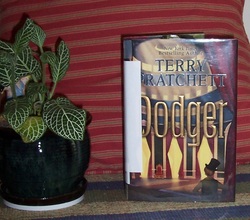 I've challenged myself to read five books from the Newberry award list and five from the Printz list by the end of this year. I'm starting with Sir Terry Pratchett's Dodger, a Printz winner. Pratchett creates worlds and characters every bit as rich and amusing as the ones in Harry Potter's world, and he was doing it long before J.K. Rowling dreamed up the boy wizard. Makes me wonder if she might have been a wee bit influenced by him. Pratchett's fantasy series Disc World boasts forty-one books, including the Tiffany Aching subseries, written for YA readers. Set in Victorian London, Dodger is historical fiction with a twist (Pardon the pun. I promise, it wasn't intentional.) "I'm Dodger on account of I'm never there if you know what I mean. Everybody knows Dodger." That's the voice of Pratchett's seventeen-year-old protagonist, a tosher by trade. Toshers troll the city's underground for the things people drop. On good days, that's coins and jewelry. On bad days, it's . . . well . . . it's the stuff people usually deposit in sewers. Although, believe it or not, in those days, London's sewers were fairly clean. Dodger is king of the toshers, an expert pick pocket and petty thief, and he's never once been caught by the Peelers (If you don't know what this is, you will by the end of the book). Dodger also has a heart. Living with an old Jewish man that he saved from thugs, Dodger never hesitates to jump in if someone needs help. When writer and journalist Charles Dickens discovers Dodger saving a badly beaten young woman named Simplicity from attackers, he hires Dodger to help him discover who beat her and why. Dodger is smitten with Simplicity. He agrees to help Dickens. The mystery draws him out of his comfortable, lower class world into the realm of the educated and wealthy. While Dodger upends aristocratic London, he begins to believe toshing may not be all his future holds. Pratchett wrote this book as a tribute to Henry Mayhew, a peer of Dickens who published articles and a book highlighting the horrible conditions of London's poor. Dickens' work is too dark and tragic for me. But there's no denying his talent for creating unforgettable stories and characters. Pratchett plucked Dodger from Dickens' Oliver Twist, added his limitless imagination and edgy humor, then set the teen loose to tell his story. It's a fantastic read. If you haven't already read it, what are you waiting for? Sir Terry Pratchett is sadly suffering from the early stages of Alzheimer disease. But he continues to write with the help of a dedicated assistant and his daughter. He also enjoys speaking so there are lots of videos of him on YouTube. You'll find some of them posted on his site. Go there, check it out. Dodger has a healthy respect for rats, being as he spends so much time with them. Since rats are notorious hoarders, I imagine they do their own toshing. And that's where today's sketch comes from. 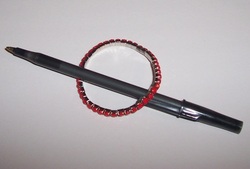 For Christmas, Teddie, the much adored leader of my critique group, The Skyway Writers, gave each member a beautiful, red-beaded bracelet. Now, I wear it every time I write. It makes me feel connected to my talented peers as I sit at my lonely desk, trying to find the right words to tell a story only I can tell. I love starting the year with a positive new tradition. I announced at the end of last month that I planned to steer this blog in a new direction. My focus will be encouraging teen readers, writers and artists. There's no better way to start than by celebrating great books. This week, one of my favorite authors, Kate DiCamillo, won the John Newbery award for the second time with her latest book, Flora and Ulysses. Have you read it? I haven't and I'm eager to get my hands on it. I've loved all her other books so I know what to expect. That's the thing about favorite authors. They don't disappoint. Julianna Baggott's new adult/YA crossover, dystopian novel, Pure is due out February 8. On the Pure website, New York Times bestselling author, Danielle Trussoni describes the book as "a dark adventure that is both startling and addictive at once. Pressia Belze is one part manga heroine and one part post-apocalyptic Alice, stranded in a surreal Wonderland where everyone and everything resonates with what has been lost. Breathtaking and frightening. I couldn't stop reading Pure." Julianna's presenting a unique opportunity for astute readers, writers and anyone interested in the creation of books to join Pure's Inner Circle and be involved in the process of Pure's trilogy. You can read about it on her blog, Baggott, Asher and Bode.
And to celebrate the season, here are two photos we snapped this week: My Christmas cactus in full bloom and a peacock strolling through a neighbor's decorations. |
AuthorI write middle grade and young adult books with a magical twist, and I'm represented by the fabulous Leslie Zampetti at Open Book Literary. Writer Websites
Augusta Scattergood Maggie Stiefvater Rob Sanders Fred Koehler JC Kato Sarah Aronson Kelly Barnhill Linda Urban Kate DiCamillo Jacqueline Woodson Helpful Links SCBWI Agent Query Lorin Oberweger - Freelance Editor Search BlogArchives
May 2020
Categories
All
|
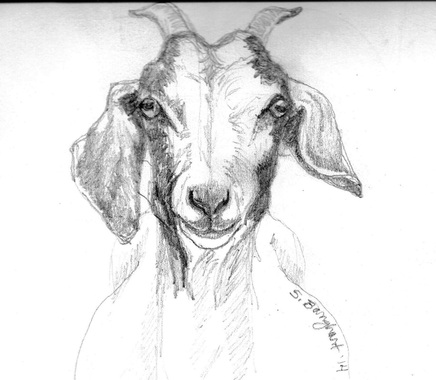
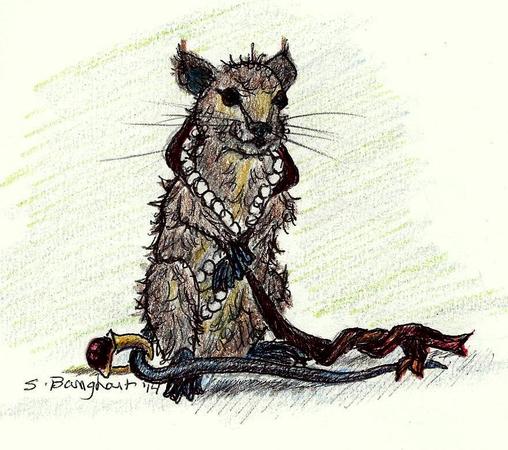
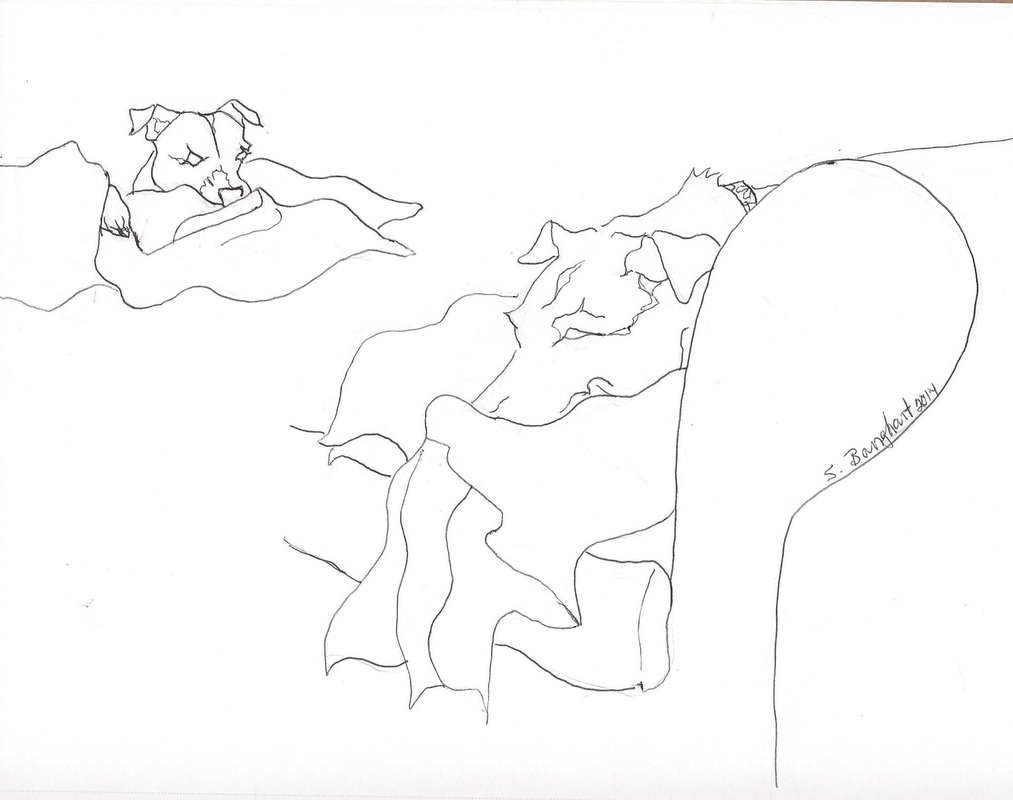
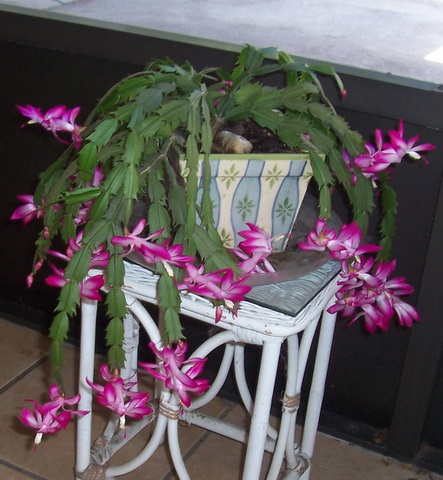
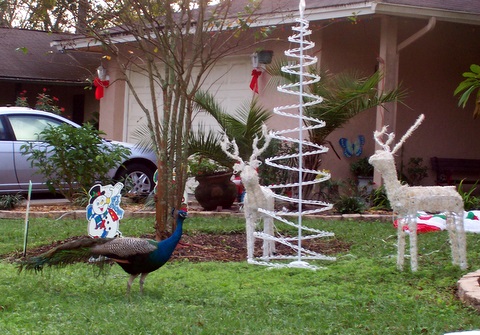
 RSS Feed
RSS Feed
